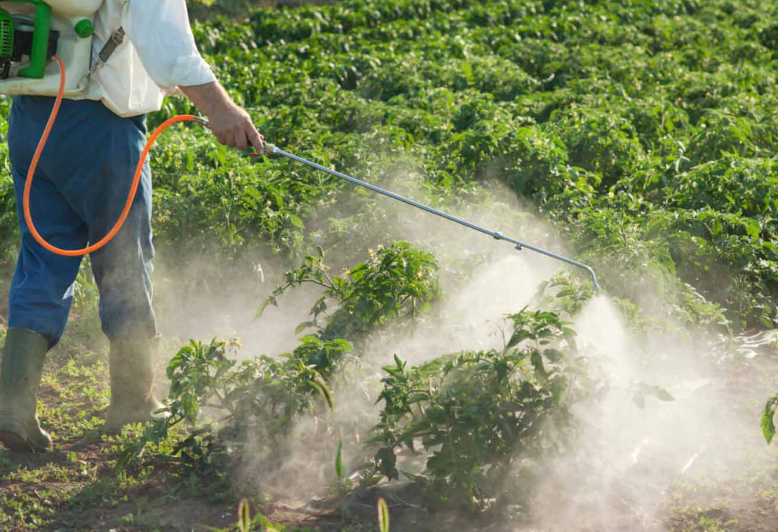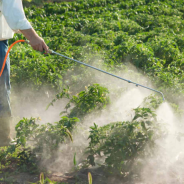Opinion: Dollars Don’t Kill Screwworms
An Editorial by Texas Agriculture Commissioner Sid Miller
December 24, 2024 – The federal government has a bad habit of spending money on problems before even figuring out what’s really wrong, and the recent New World screwworm scare is a prime example. This is typical Washington behavior—prematurely spending first and asking questions later. But here in Texas, we do things differently. We solve problems with proven solutions, not government handouts and wasteful spending.
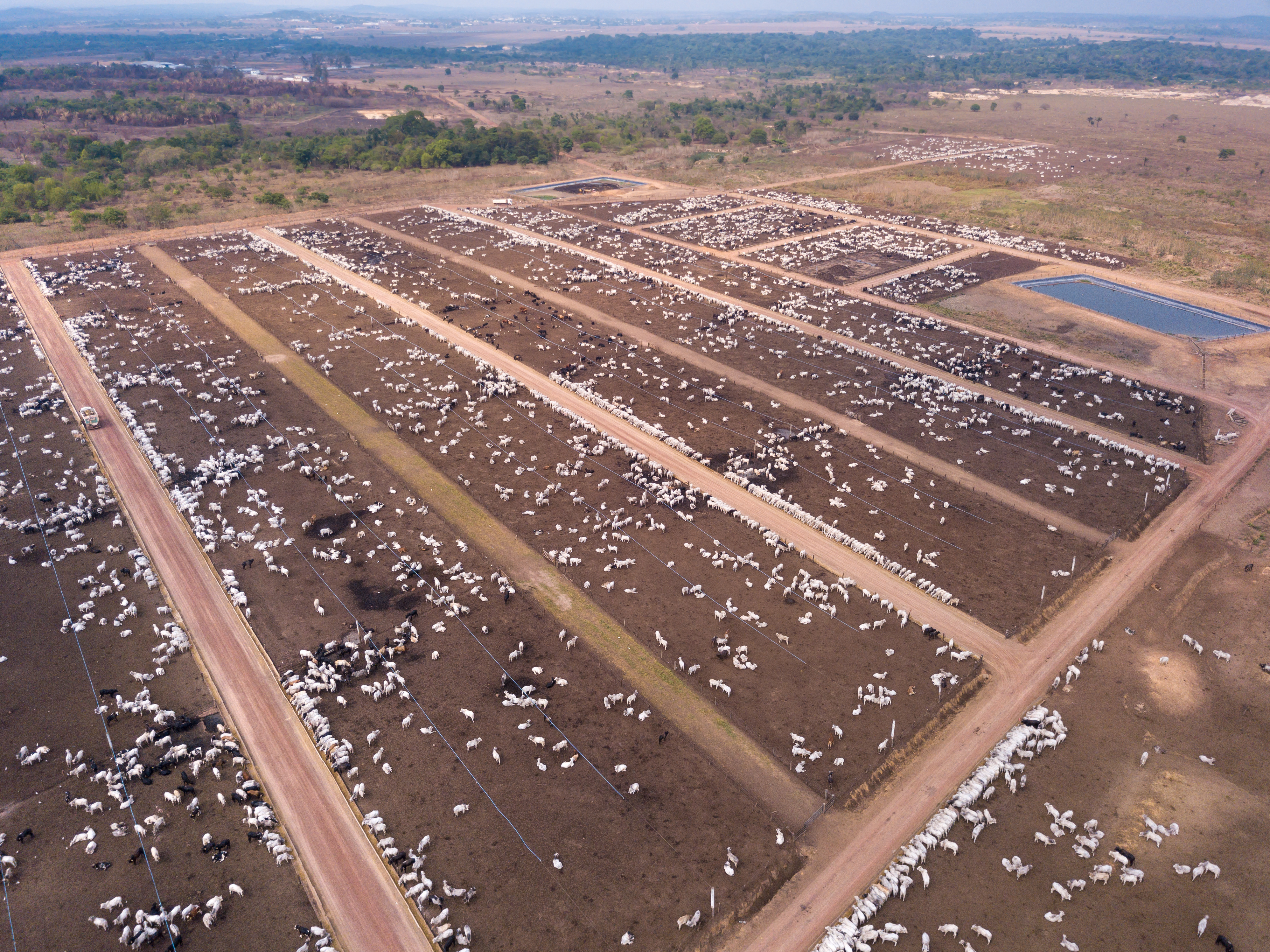
While protecting Texas cattle from disease is always our number one priority, we need to carefully consider the ripple effects of drastic measures like closing the border to livestock and animal products. It’s a surefire way to create a crisis where there isn’t one—and consumers will feel it every time they visit the meat aisle.
Look, I know a thing or two about screwworms. I was about eleven years old when the United States eradicated the New World Screwworm. Before then, screwworms were a devastating problem for ranchers. Cattle infected with screwworms showed unmistakable and crass signs—open, festering wounds teeming with larvae. You’d see animals in obvious distress, licking at the wounds and losing weight rapidly. Believe me, if you’ve got a screwworm outbreak, it’s not a question of “if”; there’s no mistaking it. You can smell them from 100 feet away.
For starters, let’s not forget the facts. We’ve come a long way since those dark days. The sterile fly eradication program, developed decades ago, was a game-changer. By releasing sterile male screwworm flies into the environment, we broke the reproduction cycle and wiped out the problem in the United States.
Recently, only one cow of thousands that were crossing into Mexico was found just north of the Guatemalan border—1,100 miles away from Texas—with a screwworm infection. That’s proof that the system is functioning as it should. So, before we panic and shut down border crossings, let’s make sure we’re not creating a bigger problem than the one we’re trying to solve.
Instead of recognizing this as a victory, the federal government is talking about throwing $165 million worth of taxpayer dollars at a “solution” for a problem that hasn’t been fully identified. Listen, dollars don’t kill screwworms. Sterile flies do. Detection systems do. We already have the tools to manage this issue because we’ve been doing it successfully for decades.
Winter gives us an edge in fighting screwworm outbreaks because cooler temperatures slow down fly activity and reproduction. With fewer flies, there’s less risk of infestations, giving ranchers and agencies more time to contain the problem and protect our livestock.
We already take precautions at the border. Every head of livestock crossing the U.S.-Mexico border is subject to strict quarantine and inspection protocols to protect our agriculture and food supply. Cattle are required to have health certificates, vaccinations, and testing to prevent diseases like foot-and-mouth and bovine tuberculosis from entering the U.S. In some cases, livestock are placed in quarantine for further monitoring to ensure they meet our rigorous health and safety standards.
Closing the border to livestock or animal products—even temporarily—could send shockwaves through the beef market. Mexico is one of our largest trading partners for cattle and beef, with significant imports of feeder cattle that help keep supply steady here in the U.S. Cutting off that supply could lead to a bottleneck, reducing the number of cattle available to feedlots, processors, and grocery stores.
Fewer cattle mean higher beef prices, increasing inflation at the checkout line.
And let’s not forget about our hardworking ranchers. Many Texas cattle producers rely on cross-border trade to keep their operations running smoothly. Shutting down the border could disrupt their business, leading to financial strain and fewer options for consumers.
As a rancher who’s seen the damage screwworms can do, I know the stakes are high. But I also know we’ve already won this battle once, and if need be, we’re equipped to win it again. The real threat here isn’t the screwworm itself—it’s the federal government that all too often overreacts and wastes taxpayer resources.=
Protecting Texas cattle from screwworms is important, but so is keeping beef prices affordable for families and securing the livelihood of our ranchers. Closing the border might sound like a quick fix, but it’s a cure that could end up being worse than the disease.
The cattle industry in Texas remains strong, and with the right approach, we’ll keep it that way.
First Lady Abbott Celebrates Fulfilling Over 5,300 Holiday Wishes Of Texas Children In Foster Care
December 24, 2024 – Austin, Texas – First Lady Cecilia Abbott today celebrated the generosity of Texans serving Texans as more than 5,300 wish lists of Texas children in foster care have been filled through donations by state agency employees in this year’s Holiday Wishes program. Sponsored by the Governor’s Commission for Women and the State Agency Council, the annual Holiday Wishes program, coordinated through the nonprofit Partnerships for Children, helps ensure children in foster care across 31 counties in Central and South Central Texas have gifts to open on Christmas morning.
“Every child deserves to know the promise of hope and the joy that Christmas brings,” said First Lady Abbott. “There is no greater example of Texans helping Texans than providing support for foster and adoptive families in Texas during the holiday season. This starts with a Network of Nurture—a community of individuals, families, friends, local leaders, nonprofit organizations, businesses, faith community members, and anyone willing to open their hands, their hearts, or their homes to the children and families in the state’s child welfare system. I thank the Governor’s Commission for Women, the State Agency Council, Partnerships for Children, and employees of the 56 participating state agencies who generously donated much-wanted gifts for our children in foster care.”
The First Lady recently hosted members of the Governor’s Commission for Women and the State Agency Council at the Governor’s Mansion to celebrate the Holiday Wishes program’s success and to prepare gift bags for caseworkers supporting children in foster care in the Central Texas region.
The Governor’s Commission for Women has served as a resource and champion for women throughout Texas for more than 50 years. Its mission is to provide access to the resources and tools that empower and enable Texas women and girls so that they may live healthier, more productive, and more prosperous lives.
The State Agency Council provides support to the Commission and offers professional development training to its members. The Council also presents the Outstanding Women in Texas Government Awards.
Partnerships for Children was founded in 2003 in Central Texas. Its mission is to make tomorrow better than today by supporting and empowering children, youth, and families involved with Child Protective Services in Texas.
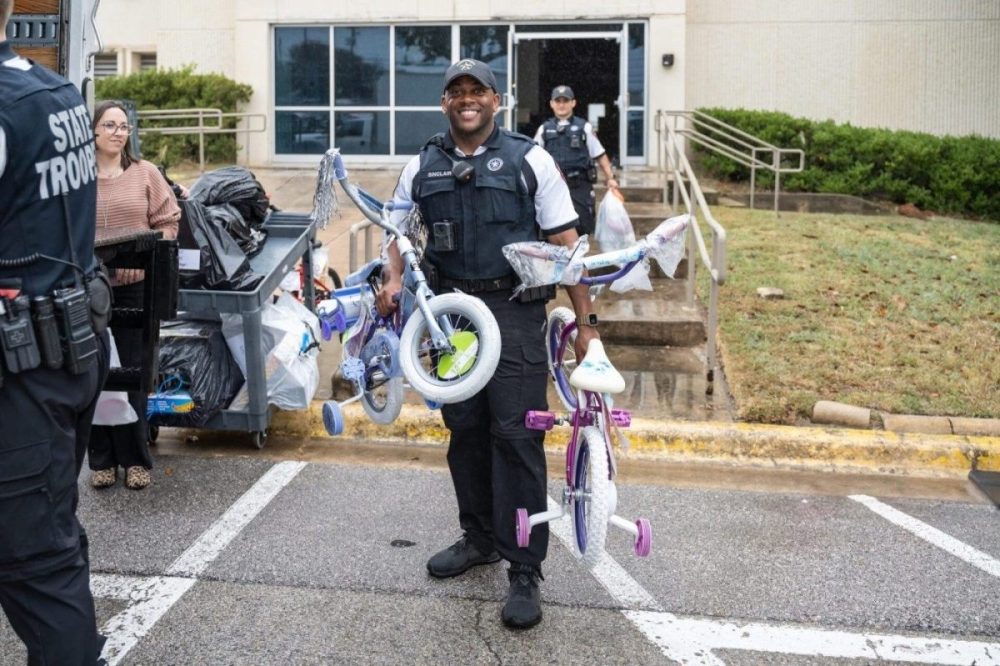
Incoming State Rep. Kerwin Introduces Measure to Limit Harmful Chemicals in Fertilizer
In lockstep with ranchers and state prosecutors who have raised the alarm, Kerwin’s measure seeks new restrictions over harmful PFAS chemicals.
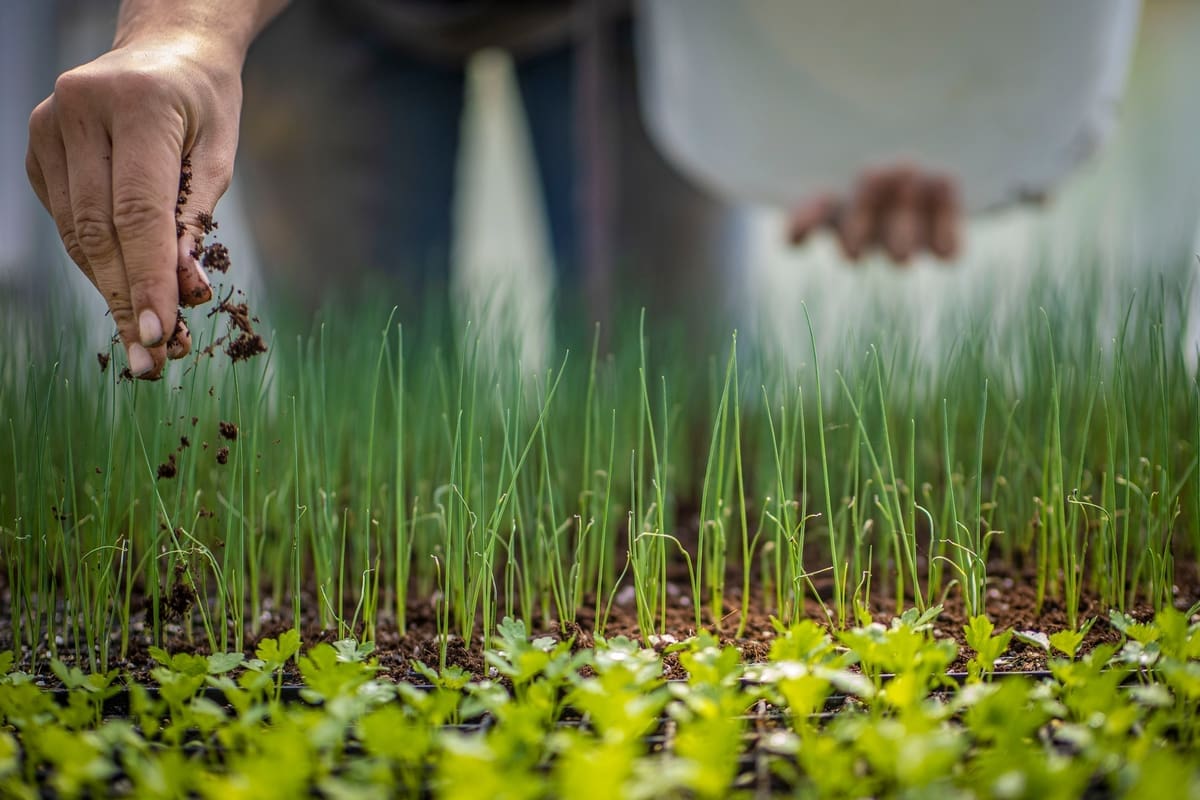
By Luca Cacciatore | December 20, 2024 – State Rep.-elect Helen Kerwin of Glen Rose has introduced a measure to regulate and limit the proliferation of harmful chemicals in fertilizers sold in Texas.
House Bill 1674 officially defines perfluoroalkyl and polyfluoroalkyl substances, known as “PFAS” chemicals. It then seeks to amend the Agriculture Code to establish strict limits on their presence in fertilizers and other agricultural materials and mandating regular testing of PFAS levels.
PFAS chemicals were first introduced with the invention of Teflon. Because they do not easily break down, they are grouped with similar compounds known as “forever chemicals.” In excess concentration, they can cause cancer, fertility issues, and respiratory problems.
“I am hoping that our legislators will support the prevention of these forever chemicals from contaminating our Texas farmlands,” Kerwin told Texas Scorecard. “Farmers are the backbone of our country, and none of us could survive without them. We must do better by our farmers, our children, and future generations.”
Kerwin’s measure would impose strict penalties for companies violating her new proposed PFAS restrictions and approve the use of stop-sale orders and licensing suspensions for repeat offenders.
The forever chemicals gained statewide attention when they were discovered in Fort Worth area fertilizers made by the Maryland-based company Synagro, which utilized repurposed waste materials called “biosolids.”
While current Environmental Protection Agency standards put the acceptable amount of PFAS in drinking water at four parts per trillion, the PFAS present in the biosolid fertilizer samples tested was considerably higher.
Lab results from the Johnson County Constable Precinct 4’s office found 27 different PFAS chemicals in one biosolids sample. In addition, the PFAS level in a single calf’s liver was a shocking 610,000 parts per trillion.
Ranchers affected by the PFAS chemicals filed a lawsuit against Synagro following the lab results. They also sued the EPA alongside several environmentalist groups for failing to prevent PFAS contamination in fertilizers.
Texas Attorney General Ken Paxton has since gotten involved in the fight as well. Earlier this month, his office announced it would go after the largest manufacturers of PFAS chemical products, 3M and DuPont.
“These companies knew for decades that PFAS chemicals could cause serious harm to human health yet continued to advertise them as safe for household use around families and children,” stated Paxton. “Texas is taking action to penalize these companies and hold them accountable for deceiving Texans into buying consumer products without vital information.”
The 89th Legislative Session begins January 14.
Attorney General Ken Paxton Sues NCAA To Protect Women’s Sports and Prevent Biological Men from Deceptively Competing in Sex-Specific Competitions
December 23, 2024 – Attorney General Ken Paxton sued the National Collegiate Athletic Association (“NCAA”) for engaging in false, deceptive, and misleading practices by marketing sporting events as “women’s” competitions only to then provide consumers with mixed sex competitions where biological males compete against biological females.
That only biological women will compete in the events is an important reason consumers choose to support women’s sports. By falsely marketing and selling competitions as “women’s” sports only to provide a mixed sex event, the NCAA violated the Texas Deceptive Trade Practices Act which exists to protect consumers from businesses attempting to mislead or trick them into purchasing goods or services that are not as advertised. The NCAA further misleads consumers by failing to disclose which participants in its “women’s” competitions are biological males.
Attorney General Paxton requested the court grant a permanent injunction prohibiting the NCAA from allowing biological males to compete in women’s sporting events in Texas or involving Texas teams, or alternatively requiring the NCAA to stop marketing events as “women’s” when in fact they are mixed sex competitions.
“The NCAA is intentionally and knowingly jeopardizing the safety and wellbeing of women by deceptively changing women’s competitions into co-ed competitions,” said Attorney General Paxton. “When people watch a women’s volleyball game, for example, they expect to see women playing against other women—not biological males pretending to be something they are not. Radical ‘gender theory’ has no place in college sports.”

Your Wildcats took on Mabank in Basketball Action December 17th
December 22, 2024 – The Sulphur Springs High School Wildcats took on Mabank in Basketball action Tuesday, December 17, 2024. Below is KSST’s coverage of the game. Sports Director John Mark Dempsey called Play by Play and Tony Flippin offered his expertise in Color Commentary. Be sure to check out the exciting game below!

Get your Garden Ready for Onions in 2025 From Master Gardener David Wall
December 21, 2024 – Onions are a fun crop to grow, requiring minimal soil preparation and very little maintenance. They tolerate most soils and transplant extremely well. They have a history possibly exceeding 5,000 years, so they’ve been around awhile, and it’s hard to imagine many foods without them. There are many varieties, and new varieties seemed to be in continual development.
Typical varieties include yellow, white and purple (red). Vedalias are considered tops, but are more expensive and seldom available for transplanting. They usually have to be grown from seed. Your local nurseries and/or hardware stores will usually have several varieties for transplanting around 15 January. Buy what you need and immediately get them in the ground.
Planting onion seeds should have already been accomplished by now, and few of us plant onion bulbs, so let’s looks at transplants. There are numerous onion sets sold in your areas, and all are good, so the choice is yours. For soil, Onions are heavy feeders, so good soil is preferred. For best results in poor soil, amend it with quality compost and add a little slow-release fertilizer. You can grow onions in your garden or almost anywhere they get plenty of sun. They’re great companion plans for tomatoes, peppers, cucumbers, carrots, cabbages & flowers, but should never be grown with peas, beans, asparagus, garlic, shallots or leeks.
Onions do better in raised beds, so simply space transplants 4” apart and 1” deep. You can go deeper, but final bulb sizes seem to be smaller. Seedling bulb size when transplanting is NOT an indication of the final bulb size. For a planting example, put a pin where a tomato plant will be located in May. Then, press the tomato cage in the soil. The plant and cage are now known, so put the transplants everywhere else!!!
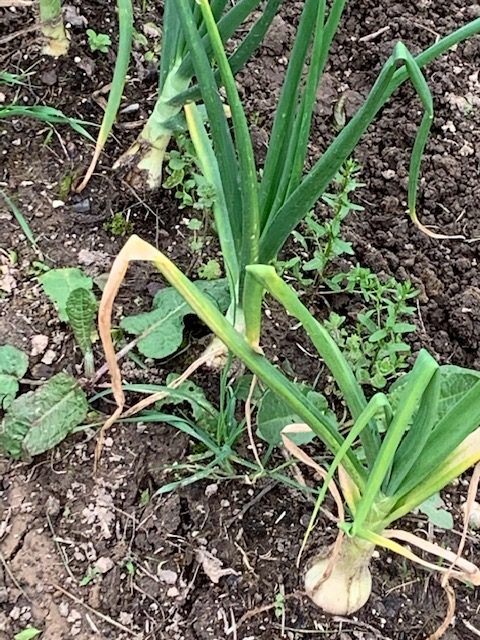
Party Over for Party City
December 20, 2024 – Location across the US will be closing soon, more than a year after Party City exited bankruptcy.
Party City Holdings, Inc., had previously filed for bankruptcy in early January 2023, but emerged from Chapter 11 in September of that year. Plans to reorganize were approved by the U.S. Bankruptcy Court for the Southern District of Texas.
CEO Barry Litwin told corporate employee that today was their last day of employment with the company. It was not clear when Party City locations would be shuttering. It is being reported that they will not receive severance pay and their benefits will end when the company goes out of business.

KSST & Cable Channel 18’s Coverage of Christmas in Sulphur Springs
December 20, 2024 – It’s the best time of the year! Christmas! Check out KSST’s and Cable Channel 18’s coverage of Christmas activities in Sulphur Springs, Texas, in 2024…
Merry Christmas and Happy New Year!

Reminder: Texas Vehicle Inspection Changes Coming Soon
New law eliminates most vehicle safety inspections
December 20, 2024 – AUSTIN, Texas – Beginning January 1, 2025, Texas vehicle owners will no longer need to obtain a safety inspection prior to vehicle registration. House Bill 3297, passed during the 88th Legislature in 2023, eliminates the safety inspection program for non-commercial vehicles. The new law maintains the annual $7.50 safety inspection fee collected at the time of vehicle registration. Texans will see this fee labeled as the Inspection Program Replacement Fee on their registration renewal notice.
Owners registering a new vehicle will pay a $16.75 Inspection Program Replacement Fee to cover the first two years of registration.
State law will still require obtaining a passing vehicle emissions inspection in the following 17 counties prior to vehicle registration: Brazoria County, Fort Bend County, Collin County, Galveston County, Parker County, Dallas County, Rockwall County, Harris County, Denton County, Tarrant County, Johnson County, El Paso County, Travis County, Kaufman County, Ellis County, Williamson County and Montgomery County.
The Texas Department of Motor Vehicles registers and titles motor vehicles, licenses motor vehicle dealers, credentials motor carriers, issues oversize/overweight permits, investigates complaints against dealers and motor carriers, and awards grants to law enforcement agencies to reduce vehicle burglaries and thefts.
Learn more at www.TxDMV.gov. Subscribe to receive TxDMV news releases via email or text message.

Texas Ag Commissioner Sid Miller Celebrates an Outstanding Year of Pesticide Waste Removal Events
Texas Department of Agriculture and Texas A&M AgriLife events collect unwanted pesticides
December 20, 2024 – AUSTIN – Today, Commissioner Sid Miller celebrated an outstanding year of pesticide waste removal events conducted by the Texas Department of Agriculture (TDA) and the Texas A&M AgriLife Extension Service. These free, public events have allowed Texas agriculture producers to safely dispose of unwanted pesticides and recycle pesticide containers. In total, the events held in Erath, Nueces, and Hidalgo Counties collected over an estimated 312,500 pounds of unused pesticides from 231 participants.
“Providing Texans with the opportunity for safe removal of pesticides is a top priority of my agency,” Commissioner Miller said. “These events represent an easy way for producers to dispose of these dangerous products safely and efficiently. I want to add special thanks to our friends at Texas A&M AgriLife Extension Service for their collaboration in making these events happen. Together, we made a real difference by keeping Texas clean and preserving our soil quality for agriculture production.”
The most recent removal event was held on December 10th in Hidalgo County with 68 participants who deposited an estimated 76,500 pounds of pesticide waste. These collection events are offered as a drive-up service, allowing individuals to deliver their unwanted agricultural pesticide waste comfortably from inside their vehicles. Pesticides brought for disposal must be in their original containers, even if the label is absent. Unknown pesticides will be tested onsite.
Accepted items included outdated, discontinued, or unwanted agricultural pesticides; insecticides; poisons; herbicides; fungicides; rodenticides; nematicides; growth regulators; and treated seed. Items not accepted included dioxins (2,4-5T, Silvex, TCDD, etc.); fertilizers; fumigant canisters; household hazardous wastes; methyl-bromide cylinders; motor oil; paint; pesticide rinsate; phostoxin; propane or butane cylinders; radioactive substances; or tires.
“Reducing pesticide waste is another way we can do our part to protect water quality, support soil health, and promote overall environmental sustainability,” Commissioner Miller said. “Proper pesticide application and disposal practices help keep Texas clean and safe.”
TDA is the state’s lead agency in regulating pesticide use and application. The agency handles licensing and training pesticide applicators, overseeing worker protection, registering pesticides for sale in the state, and working to minimize unnecessary impacts on agriculture.
